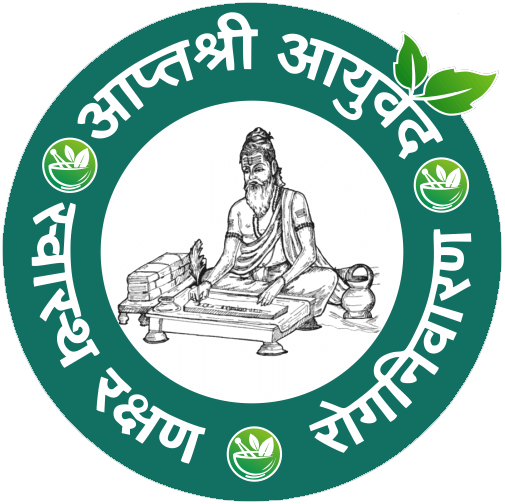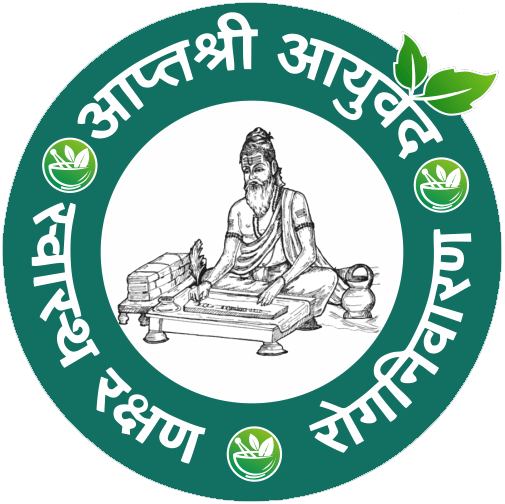AYURVED KIDNEY CARE UNIT
HEALVIBE AYURVED
M space mall, Pimprichouk, Pimpri- Pune
Authentic Ayurveda treatment on
Chronic Kidney Failure


Know What Ayurveda Says about kidney Failure…
Chronic Kidney Failure (CKD) or Chronic Renal Failure (CRF) or Chronic Terminal Kidney Disorder is very common these days with loss of kidney functions (Vrikka Kriya Haani).
Kidney Function:
- The Kidneys are two bean-shaped organs.
- Each kidney is about the size of a fist.
Healthy kidneys function to,
- Remove wastes (Drava Mala Nirharan) from our body
- Balance the Body Fluids
- Help control blood pressure
- Keep body chemicals in balance
- Produce an active from of Vitamin D that Promotes Strong & Healthy bones (Asthi-Poshan)
- Control the Production of red blood cells and help normal growth.

Kidney Disease:
Kidney disease occurs when kidneys are no longer able to clean toxins and waste product from the blood and perform their functions to full capacity. This can happen all of a sudden (Acute) or over time (Chronic). Kidney disease can get worse over time and may lead to kidney failure.
Kidney failure is explained in detail as “mutraghat” in vesious ayurveda classical book. also explained 13 types of mutraghata as per symptoms & conditions in detail.
If less than 15 percent of your kidney is working normally, that’s considered kidney failure. You may have symptoms from the build-up of waste products and extra water in your body (Kshar and Drava Sanchiti).
The alteration in kidney functions is visible in the form of,
- Swelling on the face and feet (Padashoth)
- Fatigue (Klama)
- Muscular weakness,
- Dry & Itchy Skin (Raukshya)
The severity of this Kidney Failure is graded from stage I to V depending upon the kidney functions.

-
Acute Renal Failure (ARF)/ Acute Kidney Injury (AKI):
Acute Kidney Injury (AKI) is the term that has recently replaced the term ARF (Acute Renal Failure). AKI is defined as an abrupt (within hours) decrease in kidney function, which encompasses both injury (Aaghat) and impairment (daurbalya). It is a syndrome that rarely has a sole and distinct pathophysiology. Many patients with AKI have a mixed aetiology where the presence of sepsis, ischaemia and nephrotoxicity often co-exist and complicate recognition and treatment.
Cause of Acute Renal Failure (ARF)/ Acute Kidney Injury (AKI):
Mainly,
- Urinary Tract Obstructions
- Toxicity
- Drugs adverse Effect
Furthermore, the syndrome is quite common among patients without critical illness,classification of AKI includes pre renal AKI, acute post-renal obstructive nephropathy and intrinsic acute kidney diseases. Of these, only ‘intrinsic’ AKI represents true kidney disease, while pre-renal and post renal AKI are the consequence of extra-renal diseases leading to the decreased glomerular filtration rate (GFR). If these pre- and/or post-renal conditions persist, they will eventually evolve to renal cellular damage and hence intrinsic renal disease.
-
Chronic Kidney Failure (CRF):
A patient is said to have chronic kidney disease (CKD) if they have abnormalities of kidney function or structure present for more than 3 months. The definition of CKD includes all individuals with markers of kidney damage or those with an eGFR of less than 60 ml/min/1.73m2 on at least 2 occasions 90 days apart (with or without markers of kidney damage).
Causes of Chronic Renal Failure:
- Diabetes Mellitus
- High Blood Pressure
- Recurring pyelonephritis
- Polycystic kidney disease (multiplecysts in the kidneys)
- Autoimmune disorders such as systemic lupus erythematosus
- Hardening of the arteries, which can damage blood vessels in the kidney
- Urinary tract blockages and reflux, due to frequent infections, stones, or an anatomical abnormality that happened at birth
- Excessive use of medications that are metabolized through the kidneys

-
Symptoms of Kidney Failure:
- Urination changes:
- Urine may become foamy or bubbly(fenil)
- urination may be more or less often
- amounts of urine may be greater or less than usual(vishamamatra)
- urine color may be more darker or paler than usual(roopavaivarnya)
- there may be blood in the urine(saraktamutraprawrutti)
- urinating may be difficult(sakashta mutra prawrutti)
- Swelling(shotha): When your kidneys don’t work, excess fluid isn’t removed from your body. It can build up and cause swelling in the legs, ankles, feet, face, and/or hands i.eshotha caused by dravasanchitee.
- Fatigue(shrama): The kidneys make a hormone called erythropoietin, or EPO, which tells your body to make oxygen carrying red blood cells. If your kidneys are damaged, they make less EPO, which means fewer red blood cells (raktalpata) are available to carry oxygen. This is called anaemia (pandu) which can be treated.
- Skin Rash/Itching (kandu): Kidneys in body cannot remove waste toxins that stays in the blood and can cause severe itching.
- Metallic Taste in Mouth/Ammonia Breath (mukhadaurgandha):When waste builds up in the blood it is called uraemia. This can make food taste different(aasya-vairasya) and cause bad breath.
- Nausea(Hrullasa) and Vomiting(chhardi): Uraemia can also cause nausea and vomiting.
- Shortness of Breath(shwas-kashtata): Extra fluid in the body can build up in the lungs. This build up, combined with anaemia, can result in shortness of breath.
- Feeling Cold: Due to anaemia, body feel more cold than usual.
- Dizziness and Trouble Concentrating: Due to brain not getting enough oxygen because of anaemia, one can feel dizziness(bhrama), and concentration issues.

-
-
Ayurveda View:
The kidneys are mentioned as vrikka in Ayurveda. Shotha is the name for swelling.
Some books in Ayurveda have mentioned vrikkavikar (kidney disorders) separately while many have elaborately described the shothavikar its types and effective methods to manage them.
-
Causes according to Ayurveda:
According to Ayurveda, urine formation starts in intestine itself although filtration takes place in kidneys.
Imbalance of Agni (Digestion) disturbs the process of formation and filtration of urine, malformed urine leads to accumulation of wastes in the body. This unwanted accumulation is known as ‘Aamasanchaya’ (toxin accumulation) in Ayurveda.
This ‘aama’ accumulation manifests as loss of appetite(kshudhamandya, tiredness, heaviness(gaurava), puffiness around the eyes(akshikutashotha) excess water in the later stages and abnormal values of creatinine, urea,GFR e.t.c.
-
 On the basis of different factors, damage can happen at different levels of filtration apparatus.So, Chronic kidney disease is a condition of the mutravahasrotas (The body channel that is related to the urinary system of the body and its normal functioning).The damage to the tissues is contributed by the imbalance in the three doshas (body humours – Air, Fire and Ether that isVata, Pitta and Kapha) mainly the vitiated Vata element and the raised Kapha element which leads to the blockage of various channels of the Mutra vahasrotasa leading to impaired functioning of the kidneys.
On the basis of different factors, damage can happen at different levels of filtration apparatus.So, Chronic kidney disease is a condition of the mutravahasrotas (The body channel that is related to the urinary system of the body and its normal functioning).The damage to the tissues is contributed by the imbalance in the three doshas (body humours – Air, Fire and Ether that isVata, Pitta and Kapha) mainly the vitiated Vata element and the raised Kapha element which leads to the blockage of various channels of the Mutra vahasrotasa leading to impaired functioning of the kidneys.

-
-
Ayurvedic Herbal Treatment
The Ayurvedic treatment of chronic renal failure is based on three principles:
- Helping The Damaged Kidneys :
The damage done to the kidneys can be repaired using ayurvedic herbal medicines as per causes of CKD according to Ayurveda Pathology (Samprapti).
Herbal medicines useful in this condition are:
Punarnava (Boerhaaviadiffusa), Gokshur (Tribulus terrestris), Haritaki (Terminalia chebula), Neem (Azadirachta indica), Daruharidra (Berberis aristata) and Patol (Tricosanthe dioica), Kulatha, Kutaki, Ushir etc.
(ii) Treating The Body Tissues (Dhatus) Which Make Up The Kidneys:
As per Ayurveda, the kidneys are made up from the “Rakta Dhatu” and “Medadhatus”, (raktamedprasadahavrikkau). Treating these two dhatus is also an effective way to treat the kidneys.
Medicines used are: Patol, Saariva, Patha (Cissampelos pareira), Musta (Cyperus rotundus), Kutki (Picrorrhizakurroa), Chirayta (Swertia chirata), Guduchi (Tinospora cordifolia), Chandan (Santalum album) andShunthi (Zinziber officinalis) etc. as per causes of CKD according to Ayurveda Pathology (Samprapti).
(iii) Treating the known cause
Ayurveda medicines are especially useful in treating renal causes resulting in acute organ failure, which include diseases like glomerulonephritis, acute interstitial nephritis and acute tubular necrosis.

-
-
- Ayurvedic Medicines are very effective in treating these conditions.Primary glomerular diseases like membranous nephropathy and glomerulonephritis can be treated using Punarnava, Gokshur, Saariva and Manjishtha. Secondary glomerular disease resulting from diabetes, systemic lupus erythematosus, rheumatoid arthritis etc. can be treated accordingly, using the medicines appropriate for those diseases.Similarly, suitable Ayurvedic medicines can be given for other causes like polycystic kidneys, prostate enlargement(ashthilaa) and neurogenicbladder.
-
Why to choose Ayurveda Treatment option?

-
- Ayurvedic Medicines are very effective in treating these conditions.Primary glomerular diseases like membranous nephropathy and glomerulonephritis can be treated using Punarnava, Gokshur, Saariva and Manjishtha. Secondary glomerular disease resulting from diabetes, systemic lupus erythematosus, rheumatoid arthritis etc. can be treated accordingly, using the medicines appropriate for those diseases.Similarly, suitable Ayurvedic medicines can be given for other causes like polycystic kidneys, prostate enlargement(ashthilaa) and neurogenicbladder.
-
- The advantage of using Ayurveda treatment in chronic renal failure is that in most patients,
- Kidney damage can be reversedusing Ayurveda treatment
- Frequency of dialysis can be reduced using Ayurveda treatment.
- Risk of cardiovascular diseases can be significantly reducedusing Ayurveda treatment.
Thus, Ayurveda Treatment have the potential for an important therapeutic contribution in all the stages of this condition.
Ayurveda Treatment should be taken in the form of additional treatment anddiet to improve kidney Function.
Ayurveda doctors of HealVibe Ayurveda Clinic are successfully treating such kidney and urinary track disease patients from last 13 years. Many success stories motivating us to work on this deadly conditions. Ayurveda and Panchakarma treatments helping patients keeping away from dialysis and making them to live independently.
- The advantage of using Ayurveda treatment in chronic renal failure is that in most patients,
Address
HealVibe Ayurveda & Panchakarma Clinic,Pimpri – pune
Address: 2nd Floor, M Space Mall beside Antheia Society, Pimpri Chauk, Nehru Nagar Bhosari Rd, Pimpri-pune 411018
Cont no. 9665010500 / 7887882442


 Kidney Failure Ayurveda treatment
Kidney Failure Ayurveda treatment